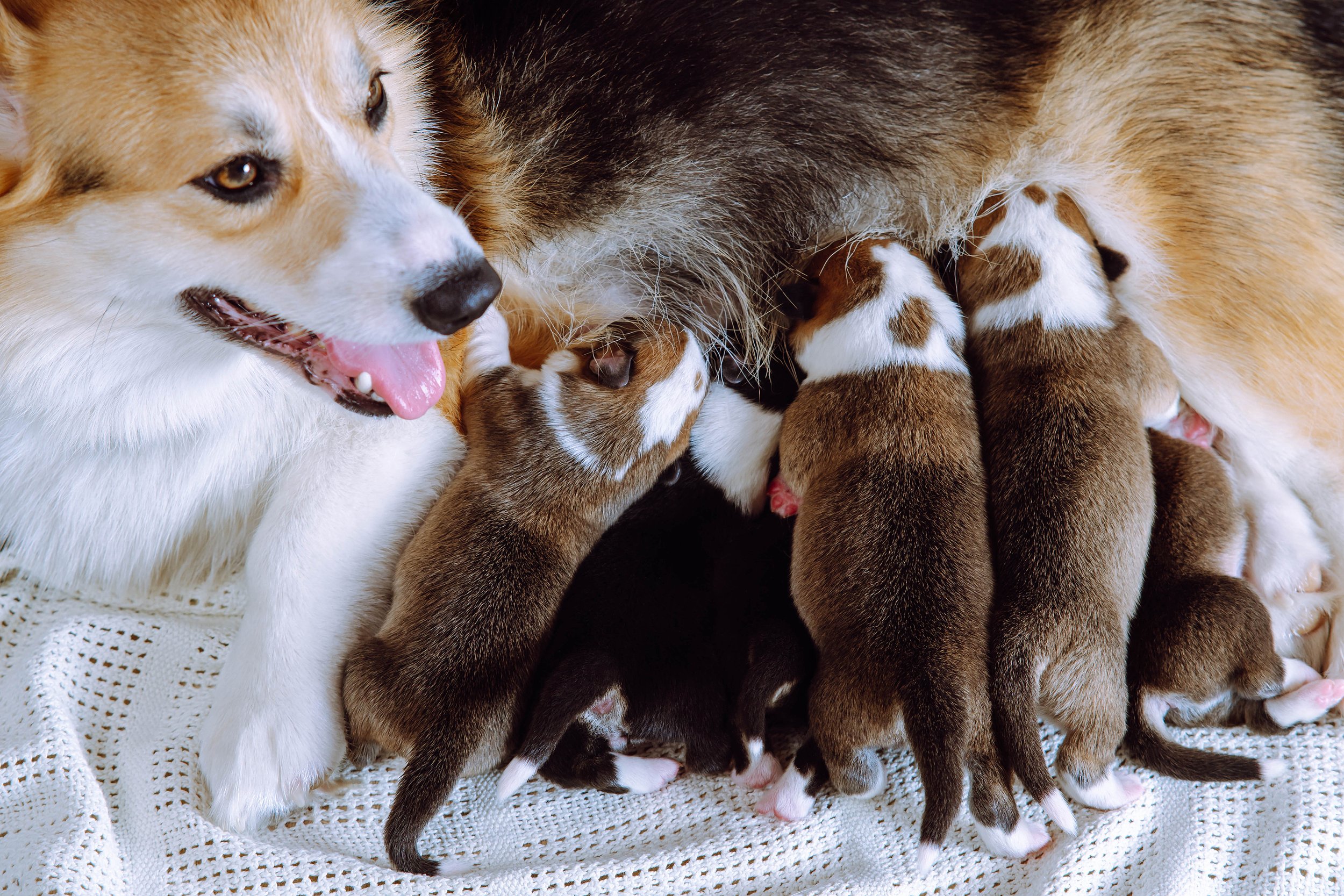Which puppy is right for me?
There is a lot to consider when it comes to choosing your new furry friend. Favorite breeds, colors, cuteness level, and types of fur can be big choices for families. However, those aren't the most important things to look for in a new pup. We have found that the most important things to consider before bringing a puppy home are these three: source, sociability, and age.
Source
Where is your puppy coming from? Most people think of choosing a puppy from either a breeder or an adoption agency such as a rescue group or shelter. Breeders typically produce dogs for profit and focus on breeding for a specific “look” (size, color, ear shape, fur texture, etc.) while adoption agencies have stray, abandoned and surrendered dogs of any breed and combination of breeds. There can be difficulties with either of these sources. The most important issue is what the puppies experience during those first months of life. Do the puppies get to stay with their litter so they benefit from the social opportunities of being with siblings? Can you go and visit the puppies, whether at a breeder’s home or a foster volunteer’s home? Are the breeders or handlers of the puppies making an effort to familiarize the dogs with the sights and sounds, and common routines of a typical family? The answers to these questions give you insight into the living conditions of the puppies and the behavior of the puppy’s parents. If the parents are fearful and unsocialized, the puppies can potentially carry that genetic predisposition. Puppies that live outside, in kennels, away from a typical family environment may have a more difficult time adjusting to life in a home.
Sociability
Scared puppies can often turn into scared adult dogs. If you see a puppy hiding in the corner, or being spooked by every little noise, that puppy may be showing early signs of fearfulness that can turn into behavior problems that are difficult to change. A puppy that seems “calm” may be a puppy that is too scared to explore or to meet new people. Behaviorally healthy puppies will be curious about new things and ready to meet potential adopters, not cower away from human contact. Handle your potential puppy before making a firm choice. A responsible breeder or foster home will socialize the puppy to help them grow more confident and comfortable with people and new places. If you find yourself with a shy or fearful puppy, get help from a professional who specializes in helping fearful dogs. You want help quickly, not later. Unfortunately, puppies rarely grow out of fear but early intervention can have a big impact on your puppy’s fearfulness.
Age
Are you getting your puppy during the critical socialization period, 8 to 14 weeks? You will be able to make the most impact on your puppy during those first early months when your puppy is a sponge for information. If you are getting your puppy after 15 weeks, this is still a time to do excellent training but whatever experiences your puppy had during the critical period is going to shape your puppy’s outlook on life. Was the world scary during that time? Was it safe and reliable? Was your puppy ill during that time and spending a lot of time at the veterinarian? Did your puppy get to have a variety of experiences that were fun for her? You may not know the answer to those questions depending on how your puppy came into your life. But if you have the opportunity to choose, make the choice to get a puppy during that early period. Then find a great trainer who will help you and your puppy get the most out of that critical time.
The puppy that is right for you and your family will depend greatly on your lifestyle, your expectations, and your own personality. There are many issues to consider and many excellent sources to help you determine how different breeds or mixed breeds may fit into your life. If you are able to choose your “pick of the litter”, keep the issues above in mind so you have the best chance of bringing a behavioral healthy new companion into your home.
Even if you did not get a chance to consider all these issues when you got your puppy, a skilled and credentialed trainer can help you navigate puppy raising. Maybe you don’t know much about your puppy’s early life, before he came to your home, or he’s older and past the critical socialization period. That’s ok. You’re amazing for opening your home to a puppy in need. Every dog deserves a loving home. Be prepared to find an experienced and credentialed trainer to help you and your family understand your dog’s needs so you can live happily with your new companion.



